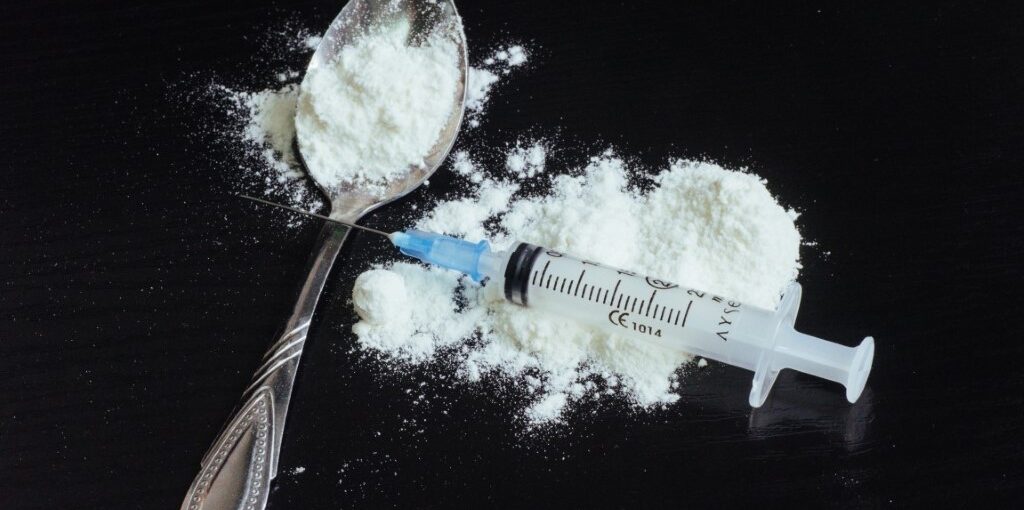In a world that never switches off, calm has become a luxury item. We chase it like status, something to earn, display, and defend. And in that desperate pursuit, one small pill has risen to the top, Xanax.
Once reserved for severe anxiety or panic disorders, Xanax has become the drug of modern life, a quick-fix tranquilliser for a society that’s forgotten how to rest. It’s the “I’m fine” pill. The chemical pause button. The socially acceptable way to disappear from your own chaos for a few hours.
But the quiet it offers comes with a hidden cost. The calm that starts as relief can quickly become dependency. What begins as a coping mechanism often ends as a currency, traded, shared, and relied upon to buy moments of peace in a culture that demands constant performance.
From Treatment to Trend
Xanax, or alprazolam, was never meant to be a lifestyle accessory. It was designed to help those crippled by anxiety and panic attacks function again. But like many pharmaceuticals, it didn’t stay in its medical lane.
The drug’s effectiveness, and the instant relief it brings, made it ripe for misuse. It doesn’t take long to learn that one small white tablet can flatten anxiety, soften heartbreak, and silence the noise in your head. It’s not dramatic like alcohol or illicit drugs, it’s discreet, tidy, and seemingly harmless.
That’s why it’s spreading. Teenagers, students, professionals, all drawn to the same promise: peace on demand. On TikTok and Instagram, “Xanax culture” is normalised through memes, influencers, and songs. The drug that once lived behind pharmacy counters now lives in playlists and punchlines.
The Sedated Society
We live in an anxious world. The pace, the screens, the pressure to stay relevant, it’s enough to keep anyone’s nervous system in a permanent state of alarm. So when a pill promises calm, who can resist? But Xanax doesn’t fix anxiety, it numbs it. It doesn’t teach the brain to regulate, it silences the alarm instead. Over time, that silence becomes addictive. Because after feeling nothing, every other emotion feels like too much.
Users start chasing that numbness like a high. One tablet becomes two, then three. The brain builds tolerance quickly. Soon, the original prescription doesn’t work, and the person who once took it to manage stress now needs it just to function.
That’s how dependency sneaks in, not through rebellion, but through relief.
The Hidden Epidemic
In South Africa, prescription drug abuse rarely makes headlines, but it’s growing fast. Pharmacies are overflowing with anxiety medication. Some people get them legally through overprescribing doctors, others buy them on WhatsApp groups or dark web marketplaces. It’s the perfect addiction, invisible, functional, and socially acceptable.
A person addicted to Xanax doesn’t fit the stereotype of an addict. They go to work, pay bills, smile at the neighbours. But underneath the polished exterior, their brain is fighting a chemical battle, a constant negotiation between sedation and withdrawal.
Withdrawal from benzodiazepines like Xanax isn’t mild. It’s one of the most dangerous detoxes in medicine. Sudden discontinuation can cause seizures, psychosis, and panic attacks so severe they can mimic heart failure. Many users try to quit alone and end up in hospital, or worse.
How the System Fuels It
Pharmaceutical addiction thrives in the cracks of modern healthcare. Doctors are under pressure to treat symptoms fast. Patients expect instant results. Insurance companies pay for pills, not therapy. Everyone’s looking for shortcuts. Xanax fills that demand perfectly. It works fast, it’s easy to prescribe, and it doesn’t require emotional effort. But it’s treating the noise, not the cause. The same anxiety returns, often stronger, when the pill wears off. And so begins the cycle of dependence that no one notices until it’s too late.
Some doctors overprescribe without fully explaining the risks. Others do it out of compassion, unaware of how quickly the line between use and abuse blurs. The patient comes back every month saying, “I just need a refill, I can’t sleep without it.” And because anxiety is invisible, nobody questions it.
The New Face of Self-Medication
Today’s Xanax user is not the stereotypical addict. They’re not shooting up in alleys or sneaking into rehab. They’re students taking it before exams, young mothers using it to “take the edge off,” professionals swallowing one before board meetings. It’s the drug of the functioning anxious, the people society praises for holding it all together. The irony is that the same high-achievers who rely on Xanax to keep calm are often the ones drowning under impossible expectations.
In a world that rewards productivity and punishes vulnerability, medicating emotions has become a survival strategy. But surviving isn’t the same as living.
Calm as Currency
We’ve turned tranquillity into a social transaction. “You’re so chilled,” people say, as if it’s a compliment. The ability to appear unbothered has become a form of social capital, proof that you’re managing your chaos better than others. Xanax feeds into that illusion. It allows people to appear composed even when they’re collapsing inside. It smooths over emotion, flattens anxiety, and lets people keep performing. But what it really buys is disconnection, from others, and from yourself.
Emotions serve a purpose. Anxiety warns us, sadness grounds us, fear protects us. When we silence those signals chemically, we lose access to our emotional compass. Over time, that numbness spreads beyond the pill’s effect. Life itself starts to feel muted.
The Black Market Calm
Like all high-demand substances, Xanax has spawned a thriving illegal market. Fake pills, often pressed with dangerous chemicals like fentanyl, are sold online and at schools. Teens call them “chill pills,” unaware that one counterfeit tablet can kill. The problem is accessibility. Social media and encrypted messaging have made it easy to buy without leaving your room. No shady dealer, no transaction on a street corner. Just a DM, a drop-off, and another secret dependence hiding behind a phone screen.
Many of these counterfeit pills look identical to the real thing, but the contents are wildly unpredictable. What starts as an attempt to manage stress can end in overdose.
The Social Media Effect
TikTok and Instagram are saturated with “mental health content”, some well-intentioned, some not. The line between awareness and glamorisation is paper-thin. Videos of influencers joking about taking “a little Xan to sleep” rack up millions of views. For impressionable teens and young adults, this normalises self-medication. Anxiety is no longer something to understand or work through, it’s something to silence. And if silence can be bought, why wouldn’t you?
The darker side of this is the peer reinforcement loop. Online communities form around shared struggle, but they can easily slip into shared dependency. Posts about panic attacks get likes. Posts about quitting get silence. The algorithm rewards the drama, not the healing.
Rehab for the “Respectable Addict”
When people addicted to Xanax end up in treatment, they often arrive in denial. “I’m not a drug addict,” they’ll say. “These were prescribed.” That’s the stigma trap, the belief that legality equals legitimacy. But addiction doesn’t care about prescription pads. It’s chemical, not moral. In rehab, recovering Xanax users often face two battles: withdrawal and shame. The withdrawal is physical; the shame is social. It’s hard to admit you’ve lost control of something society calls medicine.
Good treatment programs understand this. They focus not just on detox, but on rebuilding natural stress tolerance. Learning to experience anxiety without suppression. Reconnecting with feelings after years of emotional silence.
The goal isn’t to eliminate anxiety, it’s to make it survivable without a pill.
The Emotional Consequences of Chemical Calm
When you spend years numbing emotion, you forget how to feel. Many people in recovery describe early sobriety as being hit by the full force of reality, every suppressed feeling returning at once. It’s overwhelming, but it’s also where healing starts.
Real calm isn’t the absence of feeling, it’s the ability to stay grounded in discomfort. Xanax robs people of that skill. It gives them quiet, but not peace. True peace requires presence, not absence.
A Generation of the Overwhelmed
The rise of the Xanax epidemic says less about the drug and more about the times we live in. We are overstimulated, overworked, under-slept, and emotionally exhausted. Anxiety isn’t an illness in isolation, it’s a symptom of modern life. But instead of changing the system that makes us sick, we medicate ourselves to survive it. Calm has become a coping mechanism for chaos we refuse to confront.
That’s not an individual failure, it’s a collective one. Society tells us to hustle, optimise, and perform, then shames us when we can’t handle it. Xanax simply fills the gap between human limits and cultural expectations.
The Way Back to Real Calm
There’s no shame in needing help. But we need to relearn what help looks like. Calm shouldn’t come from a pill alone. It should come from boundaries, rest, therapy, and community, from learning to tolerate the full range of being alive. We need to stop equating stillness with success and start valuing slowness as strength. Anxiety isn’t a flaw; it’s feedback. It’s your body saying, “This isn’t sustainable.” The goal isn’t to silence it but to listen to it.
Recovery from Xanax isn’t just quitting a drug, it’s reclaiming your emotional bandwidth. It’s rediscovering what calm actually feels like when it’s earned, not bought.
The Currency of the Future
If we keep treating calm like a product, we’ll stay enslaved to the systems that sell it to us. The real rebellion is to stop needing it so desperately. To slow down. To rest without guilt. To feel without fear.
Because peace isn’t something you swallow. It’s something you practice. And the moment we stop buying calm, we might finally start living it.













